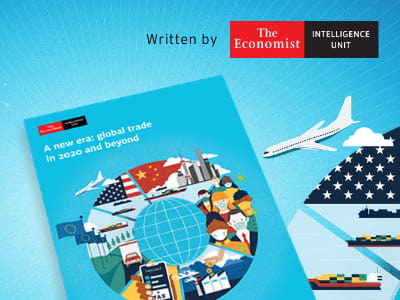- Blog
- 3 important lessons of 2020 from 6 CFOs
3 important lessons of 2020 from 6 CFOs
In our brand-new virtual event, Nordic Leaders Circle, that was held in December, we heard from a panel of six Nordic CFOs regarding how their year has gone and what new insights they learned.
In this blog, we’ll take a look at the most important lessons these six CFOs learned in 2020.
At our virtual event in December, Nordic Leaders Circle, six CFOs shared their insights from the past year. We heard from the following financial leaders:
- Anna Sikström (Volvo Group) from Sweden
- Lotta Nilsson Viitala (AB Trav och Galopp) from Sweden
- Douglas Lubbe (Telia Company) from Sweden
- Ilkka Pitkänen (SRV Group) from Finland
- Mika Manninen (Fennia Group) from Finland
- Cicilie Aalberg (Nordic Choice Hotels) from Norway
Here are the 3 main lessons these industry leaders learned in 2020.
1. Focus on what matters the most
A year ago, few companies thought that the world would be forever changed by a global pandemic. But throughout the year, research data has made it clear that the impact of the coronavirus has been far spreading. And the repercussions have been different depending on the industry.
One of the first lessons the CFOs shared is that they’ve had to focus on business-critical tasks such as managing spend, processing invoices, and securing cash flow for their business to stay afloat.
According to the CFO of Nordic Choice Hotels, Aalberg, COVID had a very heavy impact on their operations and continues to affect them today. The recent pandemic has made the company prioritise and focus on what is really business-critical. “We’ve stopped doing things that we have done because we have always done it.”
Nilsson Viitala from AB Trav och Gallop also shared how adapting to a new normal is necessary in these abnormal times. They have looked at opportunities to become more efficient throughout their organisation.
2. Managing supply chain risk
In challenging times, it is not enough for your organisation to simply perform at the average. The situation has forced many companies to turn their attention to suppliers and partners. Subcontractors play a big role in the ecosystem of an organisation’s supply chain. Every company is part of a larger ecosystem where it’s important to stay in touch with partners, understand their current state, and manage potential risks.
“Our tools for managing subcontractors are combined with, for example, the trade register and tax offices. We have a good overview of their performance and, if necessary, we try to help them in the midst of acute crises. However, subcontractors across Europe have their own subcontractors whose performance is more challenging to monitor. So far, we have coped with it quite well,” Pitkänen from SRV Group shared.
Sikström also highlighted how Volvo Group has succeeded in achieving a situation where supplier management is carried out systematically. She advised every company to find the optimal balance between centralised and decentralised procurement. The solutions available in challenging times also need to be flexible. “During the pandemic, it has been important that everyone, regardless of their role, has had the ability to process invoices easily and quickly.”
3. Building new skills (or become a master in power yoga)
As the world changes, so is the role of the CFO. The pandemic has required that many CFOs take on new skills and competencies to fulfill their roles. The CFOs in our discussion agreed that the pandemic has required them to step up and take on more of a leadership role within their company. The CFOs agreed that they have also learned more about their organisation and the key drivers for their business.
Aalberg from Nordic Choice Hotels shared that she has learned how important communication has been during this time to help the organisation better understand the severity of their situation.
In Volvo Group, they have always worked with flexibility scenarios, but they have never been forced to execute at such rapid speed. “I believe that fast execution and being brave in decision-making will be important also in the future,” Sikström predicted.
The moderator of the event, Peter Nyman, summarised that a good CFO should now have learned to become a master of power yoga; where key characteristics are strength and flexibility.

A New Era: Global Trade in 2020 and Beyond
Basware has sponsored a new report from The Economist Intelligence Unit (EIU) that dives into the key factors driving modern commerce, business transactions, and supply chains over the next year.
Read the report to learn how organisations can safeguard global trade in 2021 and discover how better supplier management practices and stronger interdepartmental relationships with finance and procurement can help to better manage cashflow and future-proof business.
